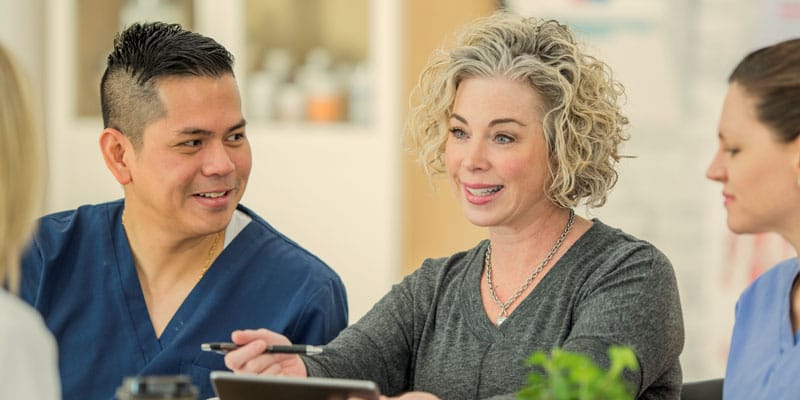Collaboration with healthcare providers and authorities
One of the objectives for Genomic Medicine Sweden is to strengthen Swedish healthcare through a coordinated implementation of broad gene analysis for improved diagnostics, treatment, and follow-up, of patients with a variety of diseases across the country. Collaboration with healthcare providers and authorities takes place on several levels.

Wide collaboration between academia and healthcare providers
A coordinated team consisting of clinicians, diagnosticians, hospital geneticists and researchers from all regions within the Genomic Medicine Sweden (GMS) initiative manage work in the following diagnosis and treatment areas:
- childhood cancer
- complex diseases
- hematology
- infectious diseases
- pharmagogenomics
- rare diseases
- solid tumours
In addition to these coordinated teams we also receive help from a clinical reference group consisting of specialists in rare diseases, hematology and solid tumours.
GMS’s steering group consists of representatives appointed by participating universities, regions, the private sector, and patient organizations. This enables unique conditions for strengthening Swedish research, healthcare, innovation and collaboration with the private sector in precision medicine in Sweden.
In collaboration with other key actors in healthcare and the life science sector
In our effort to strengthen the implementation of precision medicine in Sweden we also work together with other key actors in healthcare and life science, such as the Swedish Association of Local Authorities and Regions, National Program Areas for Knowledge Management, Regional Cancer Centres and Clinical Studies Sweden.
With the start autumn 2020 the cancer precision medicine clinical study, MEGALiT, is a project within GMS.
Collaboration with authorities and expert groups
We have an ongoing dialogue with authorities and other expert groups, such as the Dental and Pharmaceutical Benefits Agency (TLV), the Ethical Review Board (EPM) and the New Therapies Council (NT-council). Collaboration and dialogue affects for example how Swedish recommendations, regulations and management models might need to be adjusted in order to reflect the rapid development in precision medicine.

